I took a road trip to Independence, Missouri, for another look at cactus in the Mid-West, this year sponsored by the Kansas City Cactus and Succulent Society, June 9-12, 2022. About the time I finished writing this story of all the things I wanted to share from the conference, I realized how long it had gotten! So I have divided into two parts, and even then, both are a bit long, so I hope you won’t give up and quit before you make it to the end. So much good information, so little space! But here we go.
I could have made the trip to Independence in one day, but since the Internet said it was basically a ten-hour trip regardless of which of the three routes they suggested, I decided a two-day trip would be best. And it was. The car odometer said I traveled 1,452.7 miles, round-trip, and I am amazed it wasn’t more. Seemed like more! I drove from Muleshoe through Oklahoma City to Wichita, Kansas, on Wednesday, spent the night, and then drove the rest of the way to Independence on Thursday.
I was on a turnpike much of the way through Oklahoma and Kansas and would have loved to stop for a picture of the nice green countryside in both states, but I will have to admit I was a bit intimidated by the very speedy and heavy traffic and wasn’t willing to stop on the shoulder to take a shot. Signs that said no stopping on the highway didn’t help, either. That also caused me to miss the Welcome to Kansas sign. And the Welcome to Missouri was in the middle of highway signs on the highway as I went from one Kansas City to the other, which is also where a Welcome to Kansas sign would be on my way home. I was also not expecting the Flint Hills monument that popped up, but then I passed an exit to something called Bazaar Cattle Pens, so I took it. And this is what I saw.
But I digress. I had a little trouble finding the Stoney Creek Hotel, but got there in time to walk the mile around a manmade lake behind it.
This has nothing to do with cactus, of course, but at a small park on the other side of the lake, I came across one of the Canada geese who apparently lives at the lake fulltime and was raising her family there. I had never seen goslings before, so naturally I had to have a picture. Later I saw the rest of the flock who had decided to stay there year-round too.
And I digressed again! But now I am there, and the conference began Thursday night with a welcome from Eva Allen and mark Raduziner from the Kansas City society hosting the event. The rest of the night was visiting, buying raffle tickets to see who wins the right to get first pick of the plants on sale before the rest of us get to shop, and of course, then the shopping. I wound up with one plant and two small pots, which was one plant more than I had planned to buy. But at least I did show some restraint!
Friday started off with Guillermo Rivera and cactus from Central Brazil. We learned about Brazil and its cactus, and what fun when he showed a picture of the plant I had bought the night before, a Quiabentia vertiailata! It’s little, but it will grow.
The next presentation was by Rob Wallace on studying plants in their native habitat and what we can learn about cultivating those plants in our collection. This was a lesson in geography and science to understand how climates are made and how plants adapt to them. I really enjoyed the whole thing. Well, almost the whole thing; he didn’t get to finish because the first session ran over time. The plan is to finish on Sunday, as there will be extra time since speaker Jackson Burkholder came down with Covid and had to cancel!
My friend Woody Minnich from Edgewood, New Mexico, was next with cactus from Mexico.
After lunch Rob Wallace filled in for the ailing Jackson Burkholder and educated us about how plants get named and the importance of learning those names. I really learned a lot in this session. It was fun because he pointed out that we humans classify and put things in “taxonomic order” all the time, like organizing the silverware and kinds of socks, and we need to do likewise with our plants. And then he showed us how those names developed.
I shared lunch of chicken tortilla soup with a group from Nebraska, and then Jimmy Black, one of the three Texans at the conference, reported on his involvement in reintroducing the many Ariocarpus fissuratus back into habitat that had been seized and rescued from poachers in the Texas Big Bend area. Poaching has become big business for cactus thieves who dig up and wipe out whole populations of species and sell them on the Internet for huge amounts of money.
Next Mike Hellmann talked about the bugs most likely to infest our plants and what to do about them. We all deal with bugs, so it was good to hear more tips on how to get rid of them. He shared some products to use and tips on effective use of those products.
After the bug talk, we were on own for dinner before the last session of the day, so Woody, Irwin Lightstone, Mike Hellmann, Don Lesmiester, and I made our way to Gates Barbecue, which I was told by a local was a good place to get real Kansas City barbecue. I ordered a pulled pork sandwich; the girl yelled to the kitchen “ Pork on a bun,” and this is what I got, not exactly what I was expecting! Big slices instead of pulled pork meat. But it tasted good, so there you go.
After dinner, we heard Dick and Cynde Schreiber give tips on building a greenhouse. I won’t be building a new greenhouse anytime soon, but it was good to see how they dealt with that project and how their greenhouse compared to mine. And I had to agree and smile at her comment that no matter how big you make your greenhouse, it’s never big enough!
Today’s speakers gave us a good mix of information. We were able to vicariously visit Brazil and Mexico to see their plants in habitat and then learned how to help them live in the habitat we put them in. I enjoyed revisiting all the science and geography that helps us understand what is going on with these plants in our world. We also learned the importance of learning our favorite plants’ names.
There is more to come about the rest of the conference. Stay tuned.
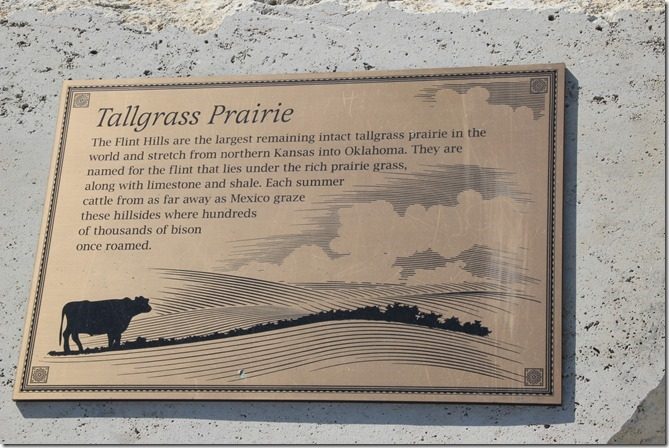
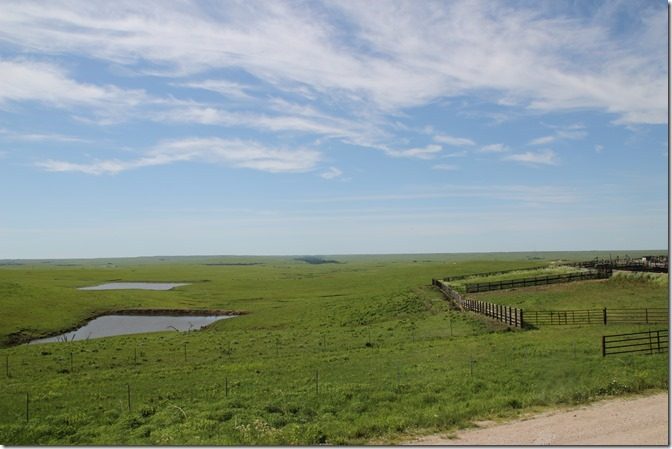
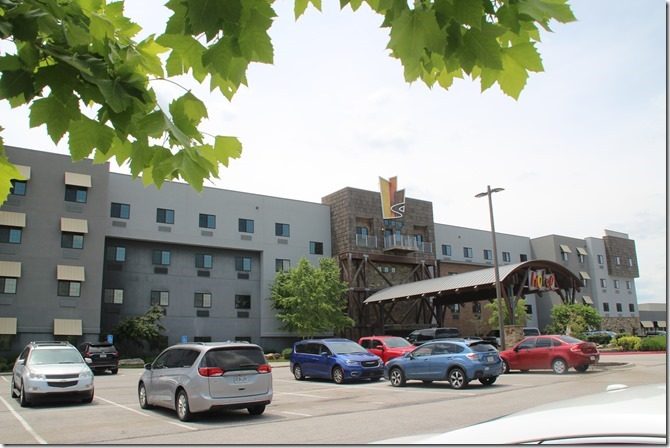
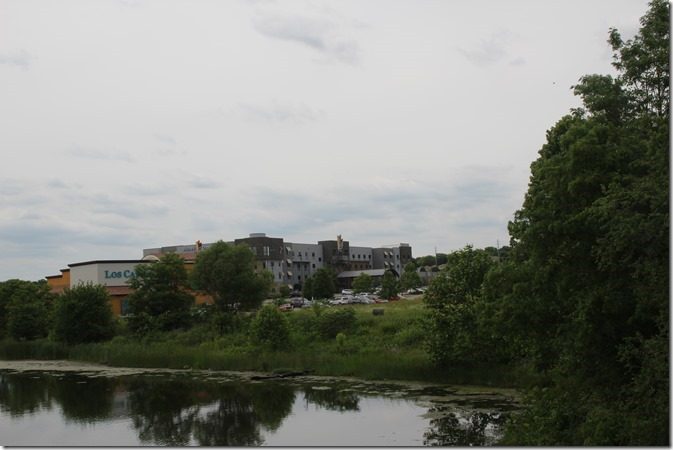
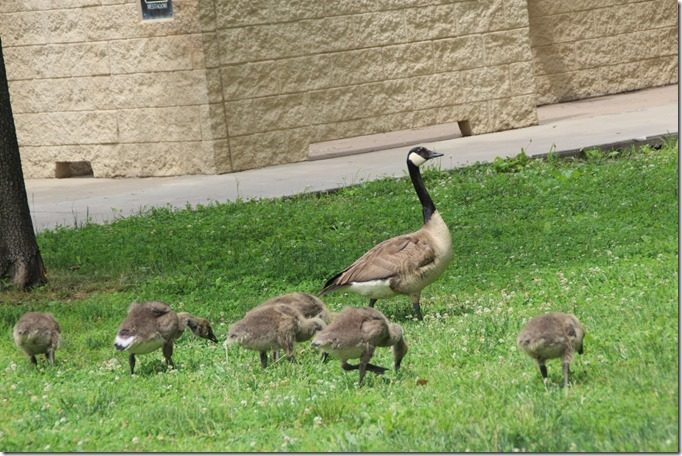
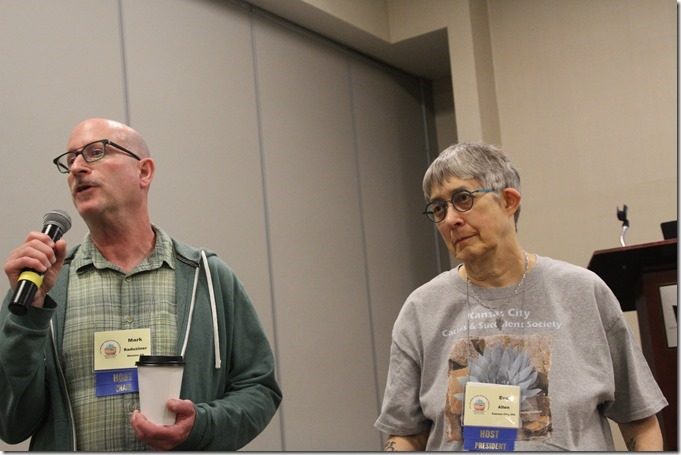
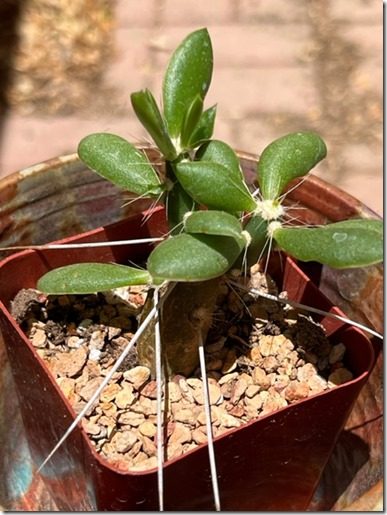
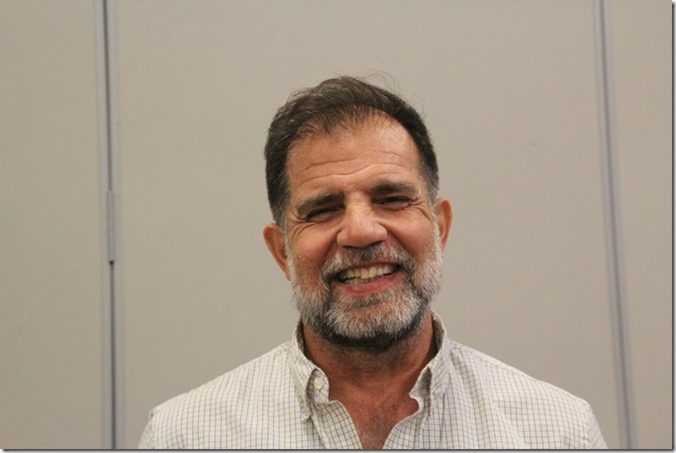
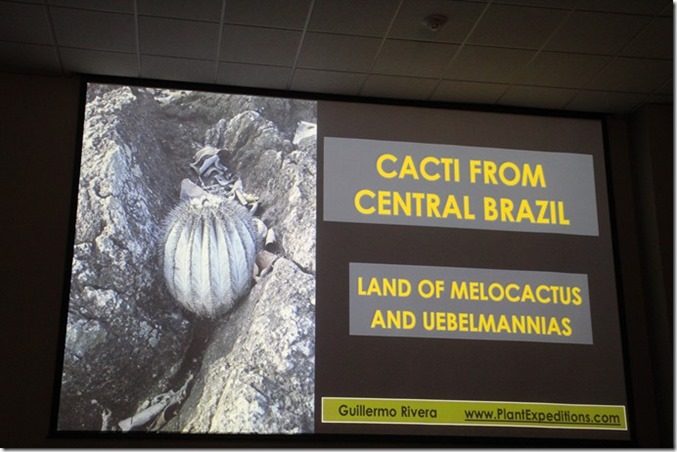
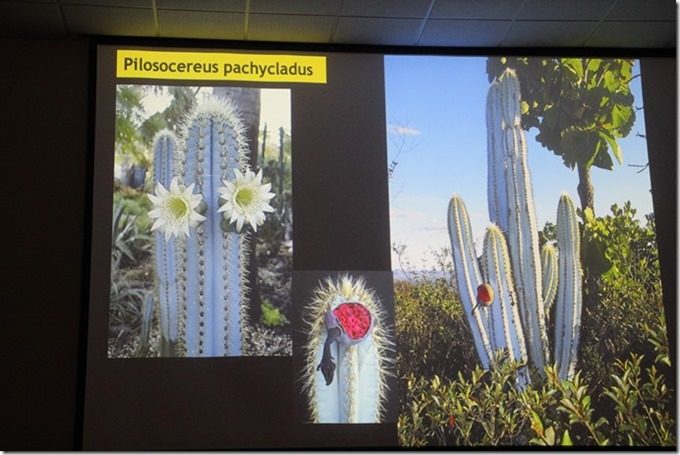
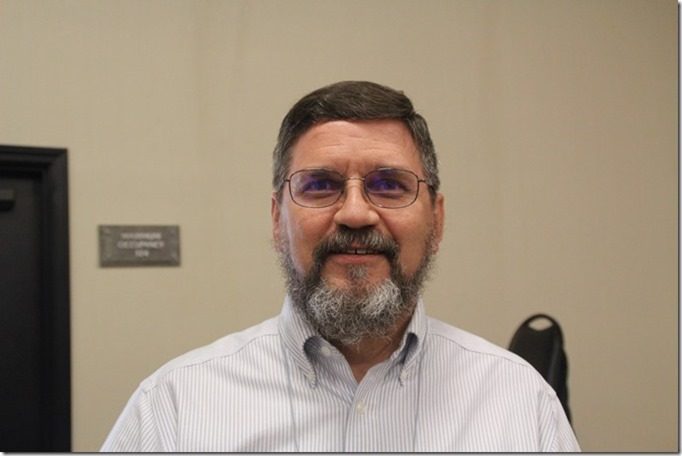
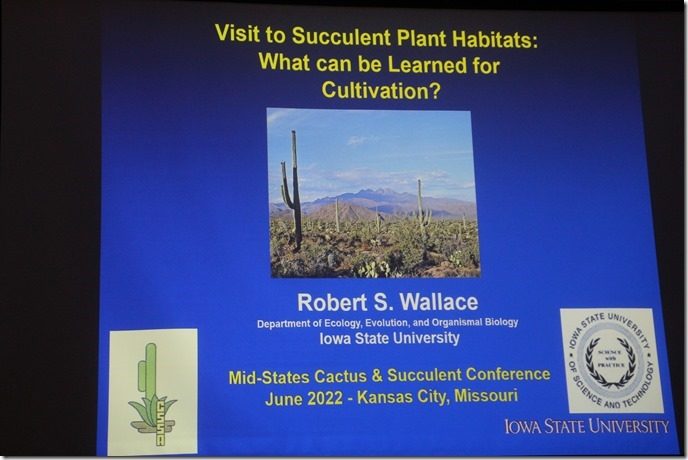
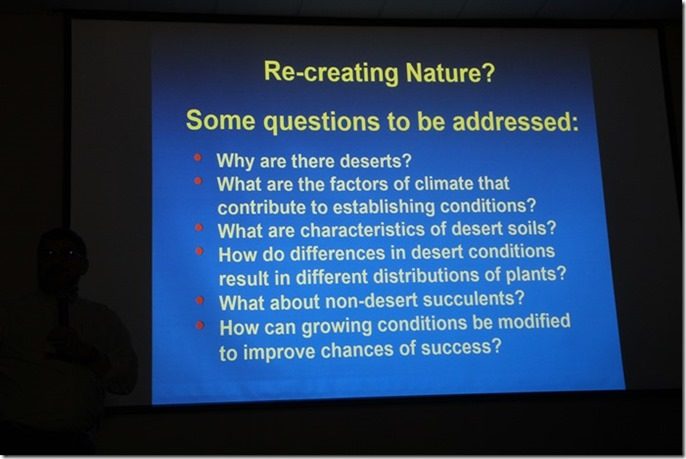
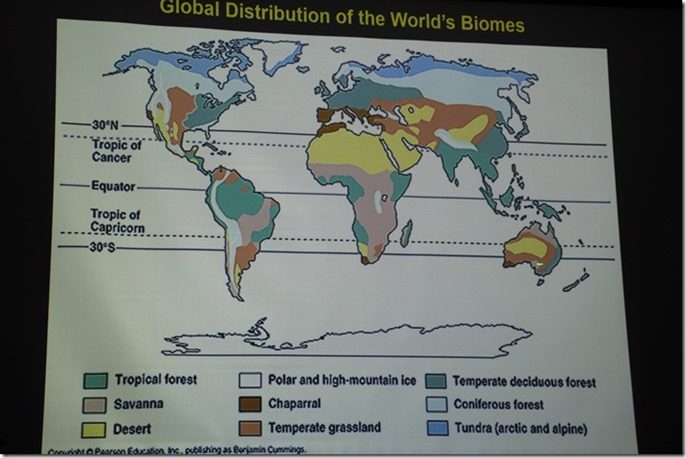
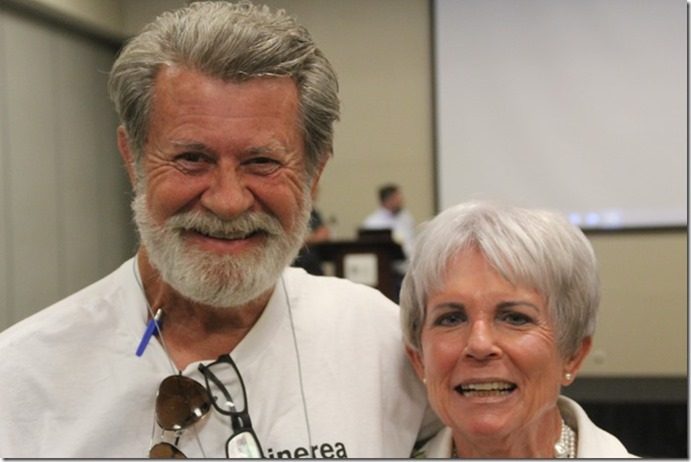
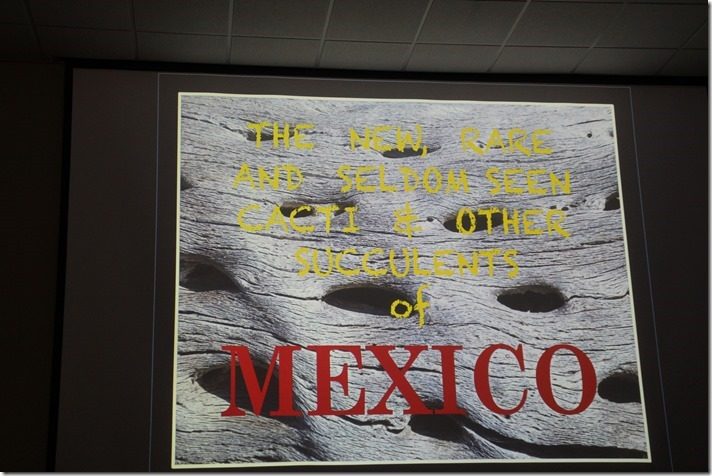
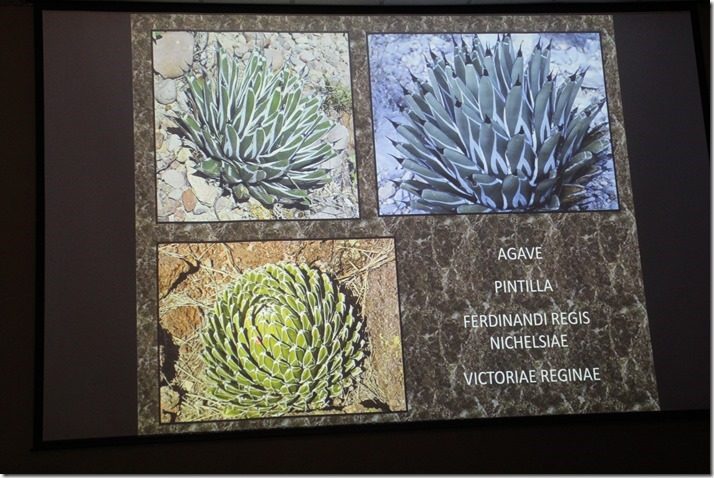
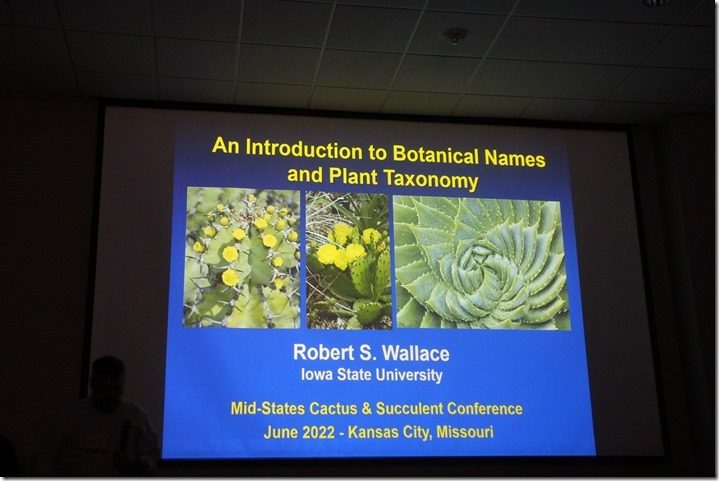
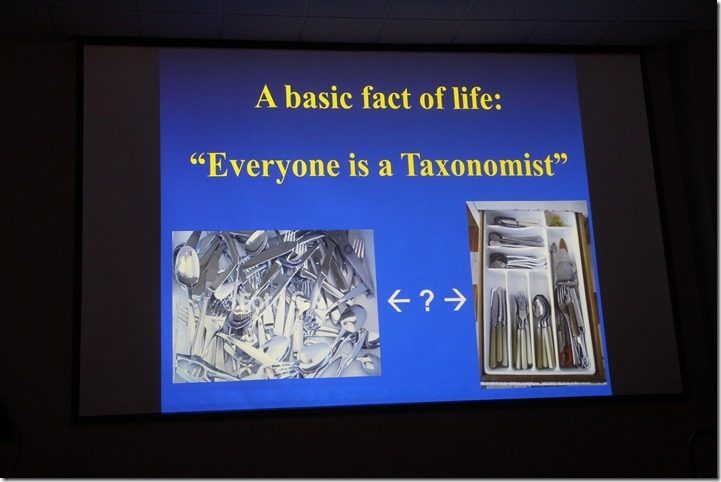
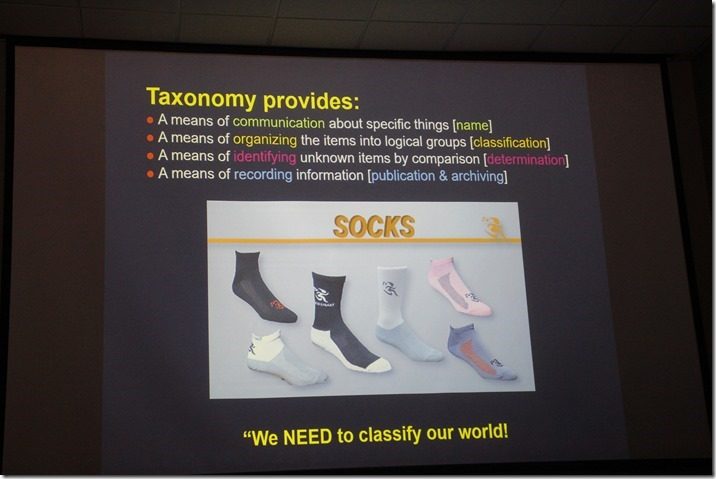
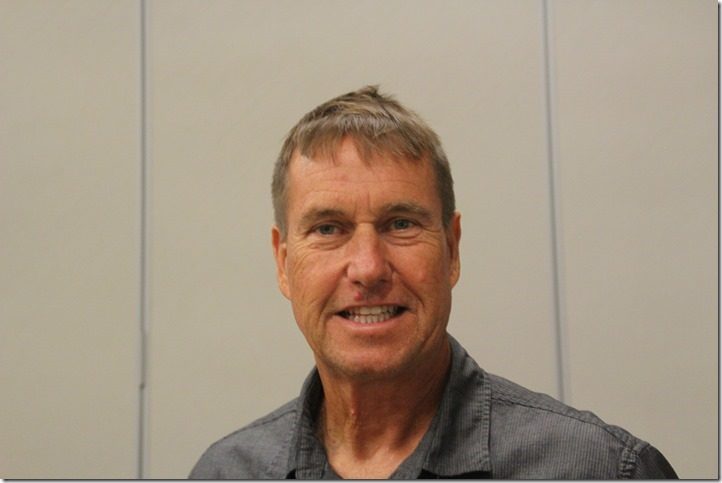
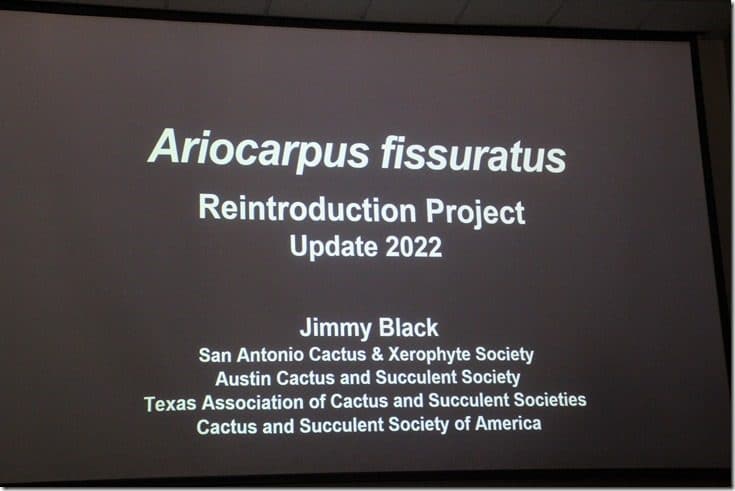
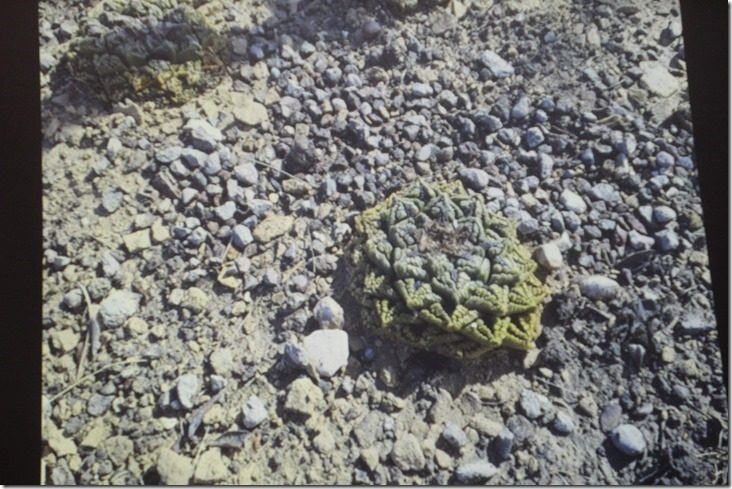
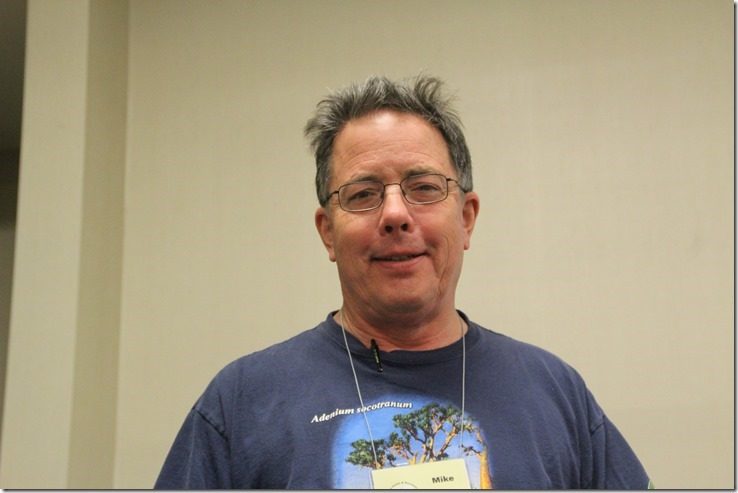
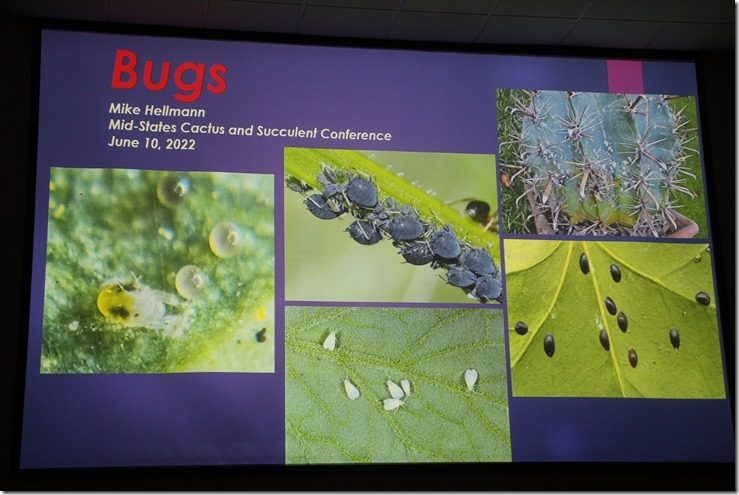
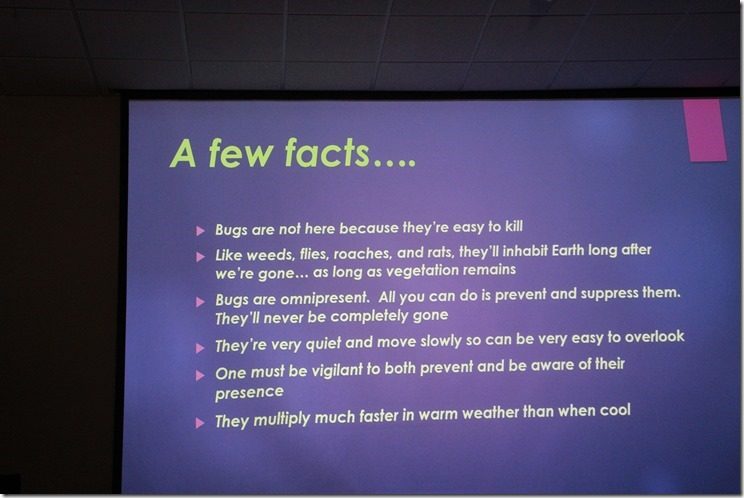
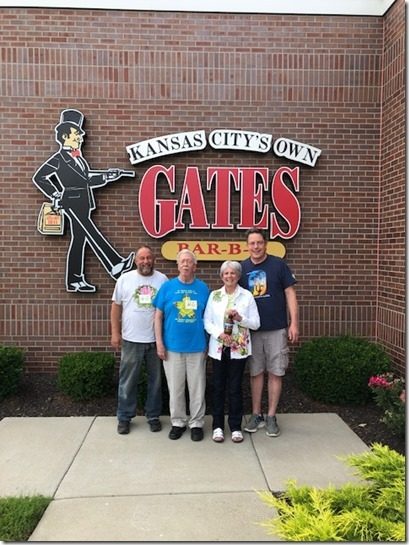
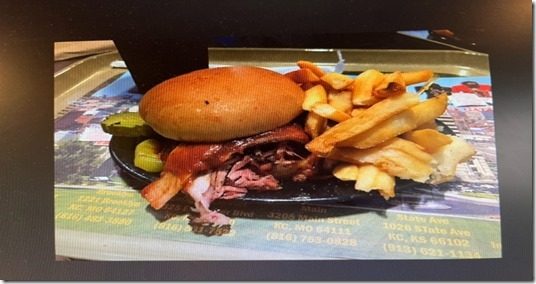
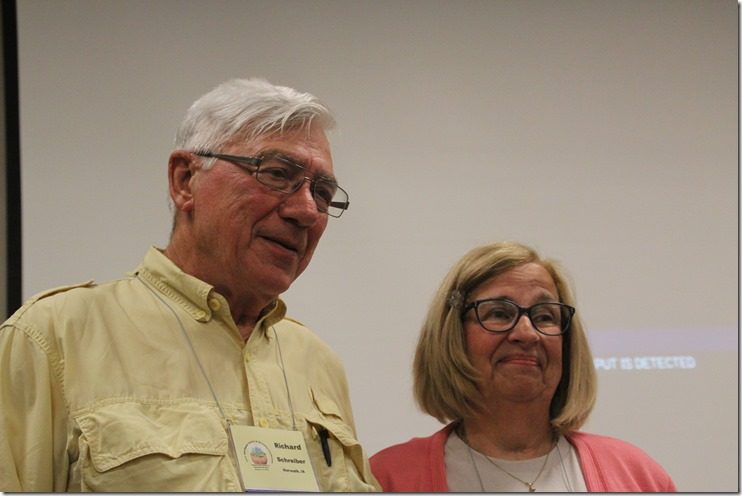
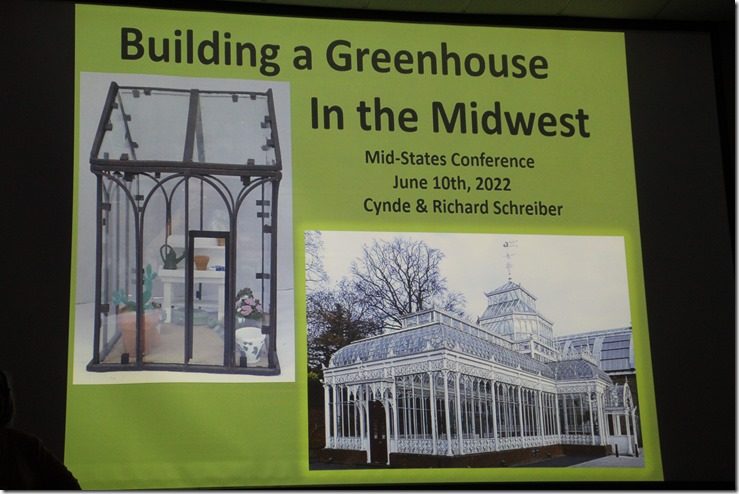
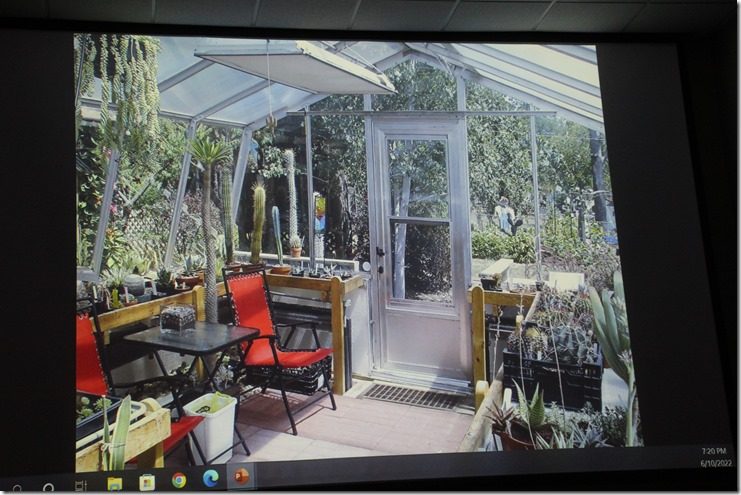
Recent Comments